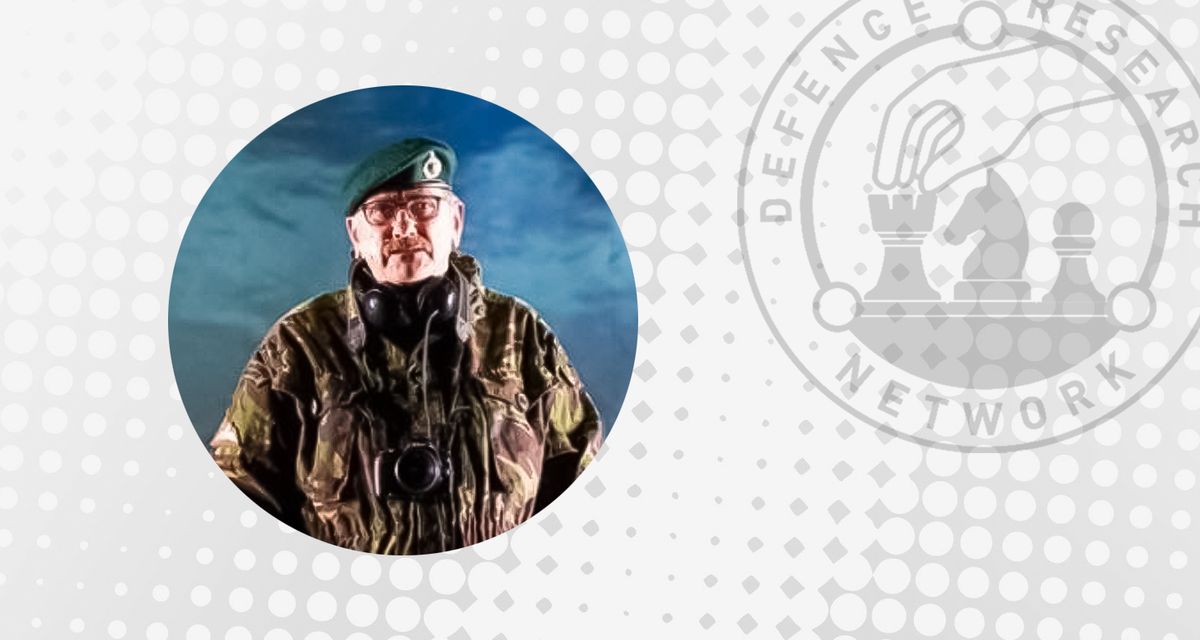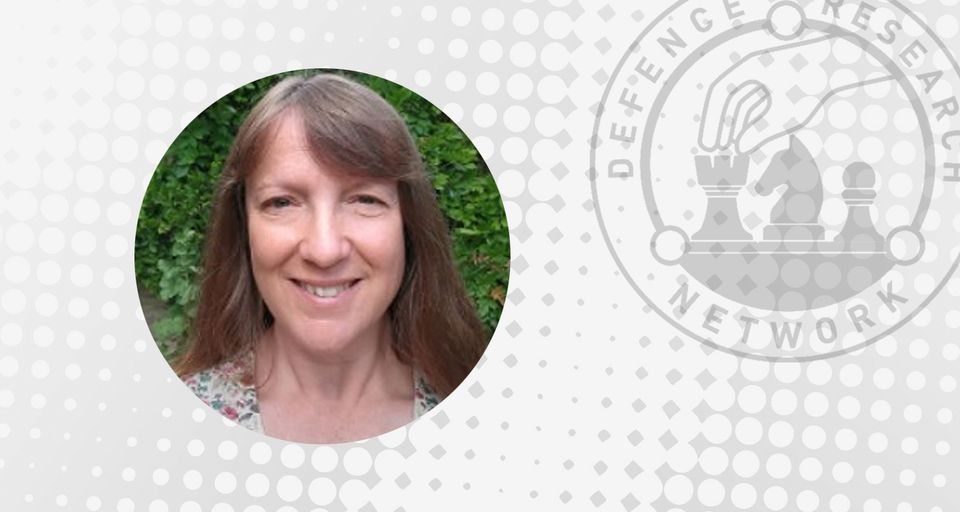In Conversation: Dr David Jackson
Dr David Jackson is the Co-Director of Veteran to Veteran (Turning it Around) and was an academic consultant for Lord Ashcroft's Veterans Transition Review. He is currently involved in Minefield, a play about the Falklands War.

What got you into your field of study in the first place?
In 1998 I enrolled on the Master in Art (Counselling studies) at the University Of East Anglia. It was a two-year course travelling up to Norwich from Cornwall for weekends of lectures and workshops and part of my ongoing professional development as a psychoanalyst.
It was on a long train journey home from Norwich I had a moment that would set the road map for what has become a large part of who I am as a researcher and had a huge influence on who I want to be as a war veteran. I have always written for myself and this was what I wrote in my journal on that train journey:
I was tired of hearing others speak for me. What do they know? What do they care? I realised that I had a voice and I could speak for myself. I was a veteran of the Falklands conflict who had been labelled as having PTSD.
It was then I wrote my first autoethnographical research piece. Has my Journey from Royal Marine to Counsellor enabled me to embrace my experience of war and ultimately accept it?
What was your path to where you are now?
It was a long one. I finished my EdD at the University of Bristol. My dissertation is called Seven Days Down South: A war story. It consisted of two distinctive parts. The first part is a DVD which is a representation of my experience and memories of returning to the Falklands on the 25th anniversary pilgrimage. The second part of my dissertation contextualised the film and the overall research project through academic writing. It was the first time in the UK the experience of war was represented using these methods. I had high hopes of getting ‘that job’ to further my research and expand these methods to other veteran and family narratives. It did not happen and after applying for many jobs with non-shortlisting’s and very few shortlisting’s I had yet another eureka moment. I needed to do this on my terms. It took 7 years from that point to getting my first 18 month contract researching what I am passionate about. It was about getting out there, presenting at conferences, networking, joining veteran’s organisation to challenge current thinking from within, knocking on doors, standing on a soap box and shouting with a passion about what is missing in veteran and families research.
What are you currently working on?
I am working on a project called Stories in Transition. We are exploring three veteran charities that use art, culture and sport to support the veteran’s community. The uniqueness of this project is that we are using veteran peer researchers who will be conducting the research. I have many roles on this project but it very exciting to be foregrounding the veteran’s voice. It is a part time role for me for two years. I work from home as part of my contract, so my commute is walking across the lawn to my office at home in Cornwall. I am also involved in a play about the Falklands War called Minefield. It has been on hold due to Covid, but we are back on stage in July in Belgium. There are 3 Argentine veterans, 2 former Royal Marines and 1 former Ghurkha in the play who are all non-actors. It is about our lives before, during and after the Falklands war. It has toured internationally for the last five years to much critical acclaim.
What are you currently reading and are you enjoying it?
I usually have two books on the go. At the moment I’m reading The Great War for Civilisation: The conquest of the Middle East by Robert Fisk. I am enjoying it because I love history through narrative. However, it actually makes me angry at times because of the sheer hypocrisy of western governments over many years. To complement this, I like to read biographies or autobiographies of interesting people. As a guitarist myself I am currently reading Slash’s, of Guns and Roses fame, biography.
Who have been the most influential academics on your professional career?
For me, it is more about who has influenced me on the importance of giving voice and foregrounding that voice. These would be Professor Jane Speedy, of University of Bristol. She encouraged me to find my voice in my way. The second is Professor Andrew Sparkes who introduced me to the ways that people experience different forms of embodiment over time in a variety of contexts. His use of narrative, ethnography and Autoethnography also encouraged me to find my voice and explore my embodied world.
What do you see as the biggest debates in the study of the military body?
I see the biggest debate in the study of the military body as being the objectification of war veteran bodies through a constant regurgitation of papers focusing on PTSD and its treatment from an experience of war. Since 1982 there have been over 30,000 papers that explore this area. Of course, I am not suggesting they have not made significant contributions to the treatment of PTSD. However, that treatment is limited by the medicalisation of such treatment through the NICE guidelines for the treatment of PTSD. Other veteran and families research tends to use online questionnaires and structured interviews. My question to the research community would be where is the voice?
Speaking as a war veteran with a mental health disability I would suggest the person who knows best what it is like to live in my skin is me. However, there is limited research that foregrounds this voice through life story, narrative, creative methods and autoethnography. Secondly, I also think that there are a lot of assumptions made about what veterans and their families might need or want from society. This feeds into policy decision making and is for us and about us without actually sitting down and asking what we might need from society as a collective group. A very good example of this is the current Operation Courage, the mental health service specifically for veterans. I find the very name it has been given incredibly patronising. Whilst I know that was not the intent, it suggests so much about veterans on so many levels. It feeds into the notion of bad, sad and mad as historical stereotypes. Seeking help from therapeutic services for veterans is far more complex than finding the courage to go. Once again no one asked us what we wanted. In fact, no-one asks what we want from society. More research is needed that asks that question and foregrounds our subjectivity and voice.
What is absent in the study of the military body?
The issue of the absence of the military body is an interesting statement. I would suggest that there is a multiplicity of layers to this ‘absence’. If we start with the MOD and the veteran’s community there is a well-trodden narrative that we are one military body. To this end, the ‘impression’ from those looking in from the outside might be one of unity, support and collaboration. However, we are not one we are two separate and distinct bodies. An example of this is the Armed Forces Military Covenant putting veterans and the Armed Forces together. The needs of both communities are very different.
If we take this down to the level of individual subjectivity and the military body, there are two very distinct bodies: the subjectivity of being in the Armed Services and the subjectivity of having been in the armed service and who now is a veteran, the veteran body. To further complicate matters there is the expectation that your embodied sense of the military can be left like a skin in a locker and you then put on the skin of being a civilian, who is a veteran. Furthermore, there is an assumption that this can be achieved through a process that is called transition. Whilst the majority of former armed forces personal can manage the nuances of this transition. There is very little attention paid to the historical, social and cultural aspects of such an experience not just for veterans but their families too. We are ignoring so much new knowledge that would inform the transition process.




